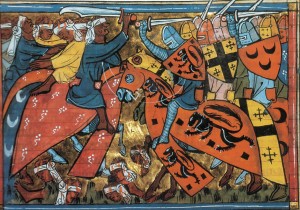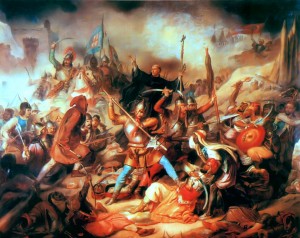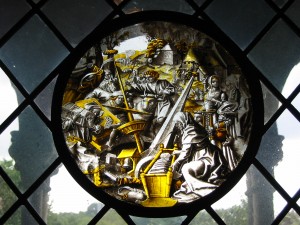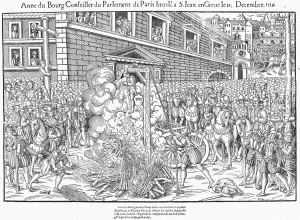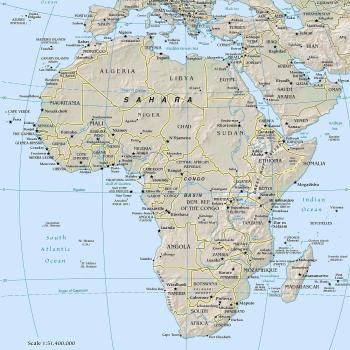What are religious wars really about?
I’ve been posting recently about the relationship between war and religious history, chiefly in the context of how warfare can shape religious change. Sooner or later, though, we encounter the familiar argument about what motivated a given cause, what drove a particular side in a war that they claimed as religious in nature.
Modern observers are deeply skeptical about such claims, even in conflicts that contemporaries had absolutely no doubt were matters of faith, where each side labeled itself with a religious or denominational label. When Christians and Muslims fought each other in the Crusades, when Protestants and Catholics were slaughtering each other in sixteenth century France or the Netherlands, when Anglicans and Puritans struggled in England’s Civil Wars – even when Protestant and Catholic militias were at daggers drawn in Northern Ireland in the 1970s.
That war? It certainly wasn’t religious, we hear: governments just used religion cynically to disguise their vested interests. Religion (Christianity) had nothing to do with that war: it was really about natural resources/oil/land hunger/surging nationalism/racial hatred…. Add whatever explanation you like. We reach the point where it seems hard to describe any war as genuinely the outcome of religious motivation. The same point applies to internal campaigns against minorities, whether Jews or heretics, or to witch-hunts. However starkly religious the rhetoric, moderns are tough to convince.
Partly, I suppose, that skepticism has a rhetorical function, in rebutting secularist claims that religious passions drive war, conflict and persecution.
But I am skeptical about the skepticism.
I would actually turn the question on its head. Prior to the modern era at least, I find it difficult to imagine any war that is genuinely secular in nature. Nor can I say with any confidence whether any particular individual or regime acted from religious motivations – if such a phrase makes any sense. And those comments apply across the faith spectrum. Note that I am not saying the Christianity or Islam or Judaism had any particular tendency to stir conflicts, rather that people operated from a religious mindset that is very difficult to reconstruct today.
Suppose we are looking at the era of the Crusades, or the sixteenth century Wars of Religion. The vast majority of people at those times, educated and ignorant alike, believed in providential views of the world. They believed firmly that wrong conduct or heretical belief stirred God to anger, and that such anger would be expressed in highly material terms, in earthquake and fire, invasion and military defeat, famine and pestilence.
Unless evil-doers or wrong-believers were suppressed, society might perish altogether. In order to destroy those malevolent groups, activists took steps that look worldly, political and cynical, but we can never truly separate those political steps from their compelling underlying motivation, which was supernatural. Hence the steps taken by regimes in (say) Europe in 1570 to stamp out their dissidents by fire and sword. Hence, also, the fanatical urge to purge the insult to God’s honor created by the Muslim occupation of the Holy Places in Jerusalem.
However historians may use the term, no “secular world” existed independent of church and religion, and the state never was, or could be, secular in any recognizable modern sense. There never was any such thing as “just politics.”
We can debate about when and how secular politics first became possible, and with them secular concepts of warfare. At some point during the eighteenth century, perhaps? Even so, still in the 1850s, Great Britain ordained special days of fasting and prayer, to support the national cause in the struggle with Russia. Various European states retained national days of prayer through the First World War.
Generally, then, I tend to accept claims of “wars of religion” at face value.
On the other side of the argument, I’d also note that over the past century or so, militantly secular and anti-religious regimes have caused far more bloodshed and carnage than all the crusades, jihads, and wars of religion combined.


